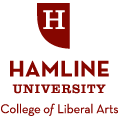Date of Award
Spring 2016
Degree Type
Honors Project
School
College of Liberal Arts
First Advisor
Nurith Zmora
Abstract
Henry Kissinger deeply influenced the foreign policy of the United States for much of the latter half of the Twentieth Century. This was especially true during the Yom Kippur War of 1973. On October 6, Egypt and Syria launched a combined invasion of Israel that caught Israel by surprise. As Secretary of State, Kissinger was heavily involved before the conflict in talking to Egypt, Syria, Israel, the Soviet Union and others to prevent the conflict. After the fighting started, Kissinger continued to leverage United States influence to end the conflict and advance the United States’ interests. His influence was even greater as President Richard Nixon was preoccupied dealing with the fallout of the Watergate Scandal, and was not focused on responding to a Middle East conflict. New archives of telephone conversations and memoranda of conversations have been declassified that show that Kissinger used this influence to keep Nixon even further away from making decisions during the Yom Kippur War. Kissinger then stepped in to implement even more of his own agenda to advance United States interests based on realpolitik and against the backdrop of dètente. He tried to appease the Arab countries while also maintaining balance in its relationships with the Soviet Union and Israel. These newly declassified documents provide a parallel narrative to Kissinger’s own prolific memoirs, and serve as a method to critique Kissinger’s own narrative which has been the prevailing historical narrative for the past four decades.
Recommended Citation
Schumer, Nathaniel, "Verbatim: Henry Kissinger, the Yom Kippur War, and the Legacy of the United States in the Modern Middle East" (2016). Departmental Honors Projects. 44.
https://digitalcommons.hamline.edu/dhp/44
dc_type
text
dc_publisher
DigitalCommons@Hamline
dc_format
application/pdf
dc_source
Departmental Honors Project

